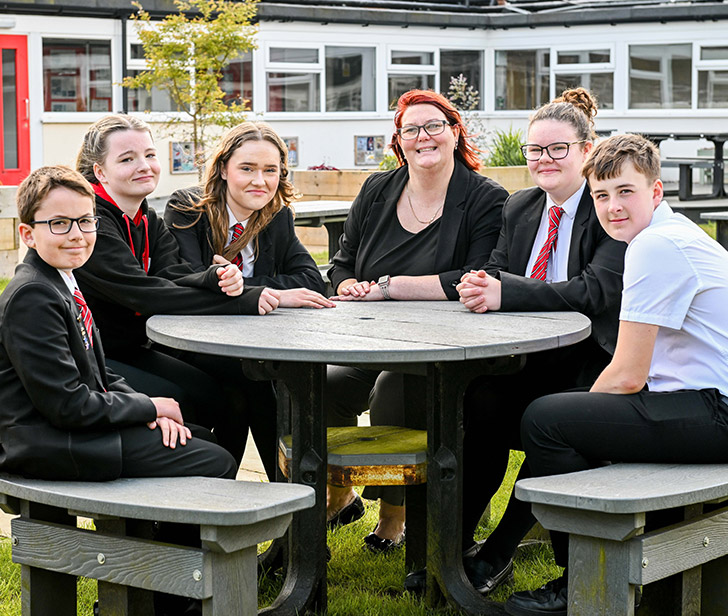Physical Education
1. Rationale
Physical education has been recognized as "probably the most significant physical activity context for developing moral character" Shields, D.L. & Bredemeier, B.L. (2007).
Thus, as physical educators we have a huge opportunity to support the development of the whole-student — physically, intellectually, socially, affectively, and possibly even spiritually. Gibbons, S.L & Ebbeck, V. (1997) It's about helping each other to develop good habits in order to bring out the best in each other both inside and outside of sport and physical activity. Rogers, S. (2020).
Government initiatives such as Sporting future by the Department of Culture, Media and Sport (2015) realised that sport has more to offer than just physical benefits, it aims to change how we categorise being successful in sport by focusing on more than physical skills those being 'physical wellbeing, mental wellbeing, individual development, social and community development and economic development.' Therefore, through PE lessons teachers should assess more than physical competence and aim to use sport to recognise other positive personality characteristics.
Our conceptual approach offers an alternative to the traditional sport and skills-based approach. The sport and physical activity therefore becomes the vehicle through which the concept id delivered or developed. By shifting the focus of the curriculum and the success criteria of each lesson, we are doing so much more than getting students active, we are delivering meaningful learning that harnesses the learning potential of physical activity and sport, whilst improving the experiences within PE for every child. In our concept curriculum every child has the opportunity to engage in relevant and meaningful learning, thus nurturing better physical literacy and increasing the chances of lifelong participation.
2. Aims
The purpose of Physical Education is to provide a high-quality physical education curriculum which inspires all pupils to succeed and excel in competitive sport and other physically-demanding activities. It should provide opportunities for pupils to become physically confident in a way which supports their health and fitness. Opportunities to compete in sport and other activities build character and help to embed values such as fairness and respect.
- develop competence to excel in a broad range of physical activities.
- are physically active for sustained periods of time.
- engage in competitive sports and meaningful physical activities.
- lead healthy, active lives.
- inspire confidence to participate beyond school.
- develop knowledge and motor movements that can be transferred into a range of activities
- experience different forms of communication, self and reflection, positive attitudes, teamwork, cooperation, commitment, initiative and leadership.
- develop physical literacy
- To prepare students for wider life
3. The rationale for Sequencing (Scope and Rigour)
The sequencing of the Physical Education curriculum at Kirton Academy intentionally allows students the opportunity to experience key concepts and skills at KS3, prior to mastering these skills and concepts at KS4. Students are exposed to a broad and balanced curriculum of activities that are tailored for students and provide meaningful connections to the concept. As students' progress throughout the curriculum, they will revisit key skills and themes; students are encouraged to start making links between concepts, knowledge and skills; applying these more confidently and independently as they move through the curriculum.
4. Why?
We scaffold the learning of our students to ensure they are exposed to curriculum themes and skills gradually and repeatedly throughout their educational journey. The more exposure students have to these themes and key skills, the more confident through an increase in competency.
5. Research informing the Sequencing decisions.
Cognitive load theory informs our curriculum sequencing; revealing the role of memory in helping students build the cognitive architecture required to access the Physical Education curriculum effectively. Our schemes of work are sequenced to ensure students' working memory is not overloaded. Through pre-teaching and scaffolding (in a 'part-whole' approach) we ensure students embed knowledge in their long-term memory. The Physical Education Concept curriculum then revisits key skills and themes over time, chunking more complex concepts; ensuring students at Huntcliff Academy are prepared for life in the wider world.
6. Key Themes
| Key Theme | Overview |
|---|---|
| Exploring Physical Literacy | Students will explore the concept and understand the importance of 'physical literacy'. Competence, confidence, knowledge & understanding and motivation are covered to help students realise what underpins physical literacy and how it can be developed. |
| Personal Development | Students will experience the true power of sport and physical activity when it comes to their personal development. Schemes of work including 'Communication', 'Resilience', 'Emotional Intelligence' and 'Intra-personal skills' help students to understand their own personal qualities and explore ways to develop these further. |
| Character Development | Students will build a connection with and understand how characters can be developed through PE and Sport. Exploring concepts such as 'Sporting Values', 'Competition', 'Problem Solving' and 'the Power of Positivity', students will realise the sheer value of PE and how it can be instrumental in developing positive personal characteristics. |
| Leadership Skills | Students will understand how sport and physical activity can be an important tool to developing their leadership skills. Schemes of work including 'Fulfilling Potential', 'Effective Teams', 'Self-reflection' and 'Attitudes and Behaviours' will support students to understand their own leadership qualities and experience what makes an effective leader. |
| Active for Life | Students will gain a deeper understanding of what it means to have good health and wellbeing and will explore different ways to keep active as they leave school. Through 'Active for Life', students will embed their understanding of the importance of physical activity and the many benefits associated to allow students to remain active for the rest of their lives. |
Download — Curriculum Overview


